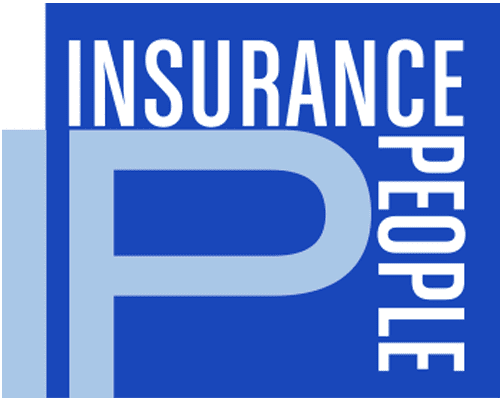Welcome to Work Comp Wednesdays! Insurance People is the industry-leader in North Carolina workers’ compensation insurance. Each week, our team takes a frequently asked question and expands on the issue for our clients, prospective clients, and community members to better understand the confusing nature of Work Comp.
This article is written by our friends at EmergeApps:
Background:
Many employers are required to keep an ongoing record of work-related injuries and illnesses known as an “OSHA 300 log.” While it is often apparent whether an injury is work-related, the nature of COVID-19 can make it difficult to determine whether an infection is work-related. To help employers, OSHA released guidance clarifying when an employer must record a COVID-19 case on their OSHA log.
Latest Guidance:
On May 19, 2020, OSHA issued its latest guidance on recordkeeping for COVID-19 cases. This updated guidance states that COVID-19 cases must be recorded on an employer’s OSHA log when specific criteria are met.
The Three Criteria:
An employee’s case of COVID-19 is recordable if all of the following are satisfied:
- The case is a confirmed case of COVID-19;
- The case is work-related; and
- The case involves one or more of the general recording criteria.
COLD/FLU EXEMPTION DOES NOT APPLY!
By regulation, the common cold and flu are exempt from OSHA’s recordkeeping and reporting requirements. However, OSHA has repeatedly made clear that COVID-19 is not subject to the cold/flu recordkeeping exemption.
Criterion #1: What is a Confirmed COIVD-19 Case?
The CDC defines a “confirmed case of COVID-19” as one that has been confirmed through specific laboratory testing. Laboratory evidence includes using a testing method approved or authorized by the U.S. Food and Drug Administration (FDA) or designated authority.
If an employee has not been confirmed COVID-19-postive through specific laboratory testing, then OSHA’s first criterion for recording is not met, and OSHA does not require the employer to record the illness.
Criterion #2: How to Determine Work-Relatedness?
OSHA requires employers to make a reasonable and good faith inquiry into whether it is more likely than not that exposure in the workplace played a casual role with respect to a particular case of COVID-19.
Yes – If the employer determines based on the reasonably available information that is more likely than not work-related, and the other two criteria are satisfied, then the case is recordable.
No – If the employer’s good faith determination is that “more likely than not” test was not met; the employer is not required to record instances of a worker becoming infected with the virus.
Examples:
More Likely to be Work Related
- Multiple cases among workers who work closely together and there is no alternative explanation.
- Close and prolonged exposure to a co-worker or customer who has a confirmed case and there is no alternative explanation.
- Employee’s duties include frequent, close exposure to the general public in a locality with ongoing community transmission and there is no alternative explanation.
Less Likely to be Work Related
- Employee is the only worker to contract COVID-19 in her vicinity and her job duties do not include having frequent contact with general public, regardless of the rate of community spread.
- Employee closely and frequently associates with someone (e.g., a family member; significant other, or close friend) outside of the workplace who (1) has COVID-19; (2) is not a coworker; and (3) exposes the employee during the period in which the individual is likely infectious.
What OSHA Inspections Will Look For:
OSHA identifies three factors for its Compliance Safety and Health Officers (CSFO) to consider in determining whether an employer has made the reasonable and faith inquiry that OSHA’s guidance requires:
- The Reasonableness of the Employer’s Investigation into worked-relatedness.
OSHA does not expect employers to make extensive medical inquiries. Instead, guidance states it is sufficient in most circumstances for the employer to:
- Ask confirmed cases how they believe they contracted COVID-19.
- Discuss with confirmed cases work and out-of-work activities that may have led to the illness.
- Consider other instances of workers in the same environment contracting COVID-19.
- Evidence Available to the Employer.
OSHA expects employers to consider information reasonably available to them when determining work-relatedness, such as medical information provided by a medical provider or local health department.
- Evidence that a COVID-19 illness was contracted at work.
OSHA inspectors are directed to give due weight to evidence of causation provided by medical providers, local health authorities, or the employee.
Criterion #3: General Recording Criteria
Employers must consider any injury or illness; including COVID-19 cases, to meet the general recording criteria, and therefore recordable, if it results in any of the following:
- Death
- Days Away from Work
- Restricted Work or Transfer to Another Job
- Medical Treatment Beyond First Aid
- Loss of Consciousness
Please note that quarantine can constitute days away from work to trigger recording, even if the employee is asymptomatic and would be physically able to work if he or she was permitted into the workplace.
Be sure to consider, given the recent prevalence in telecommuting, it is conceivable that an employee may have a laboratory-confirmed case of COVID-19 but continues working from a home-office and does not fall into one of the general recording criteria.
Insurance People offers a complimentary OSHALogs.com account for anyone interested! OSHAlogs is a free, secure, web-based application that enables employers to view injury metrics in real-time, create each state’s work comp form, manage all OSHA forms, and ensures no dual entry of data.
The March 2nd OSHA compliance date is rapidly approaching. Are you prepared?
For a complimentary account, please contact Insurance People’s Work Comp and OSHA Recordkeeping Compliance Specialist, Mitch Kaufmann, ACRA, CBIA, MWCA (mitch@inspeople.com) or by clicking here.

